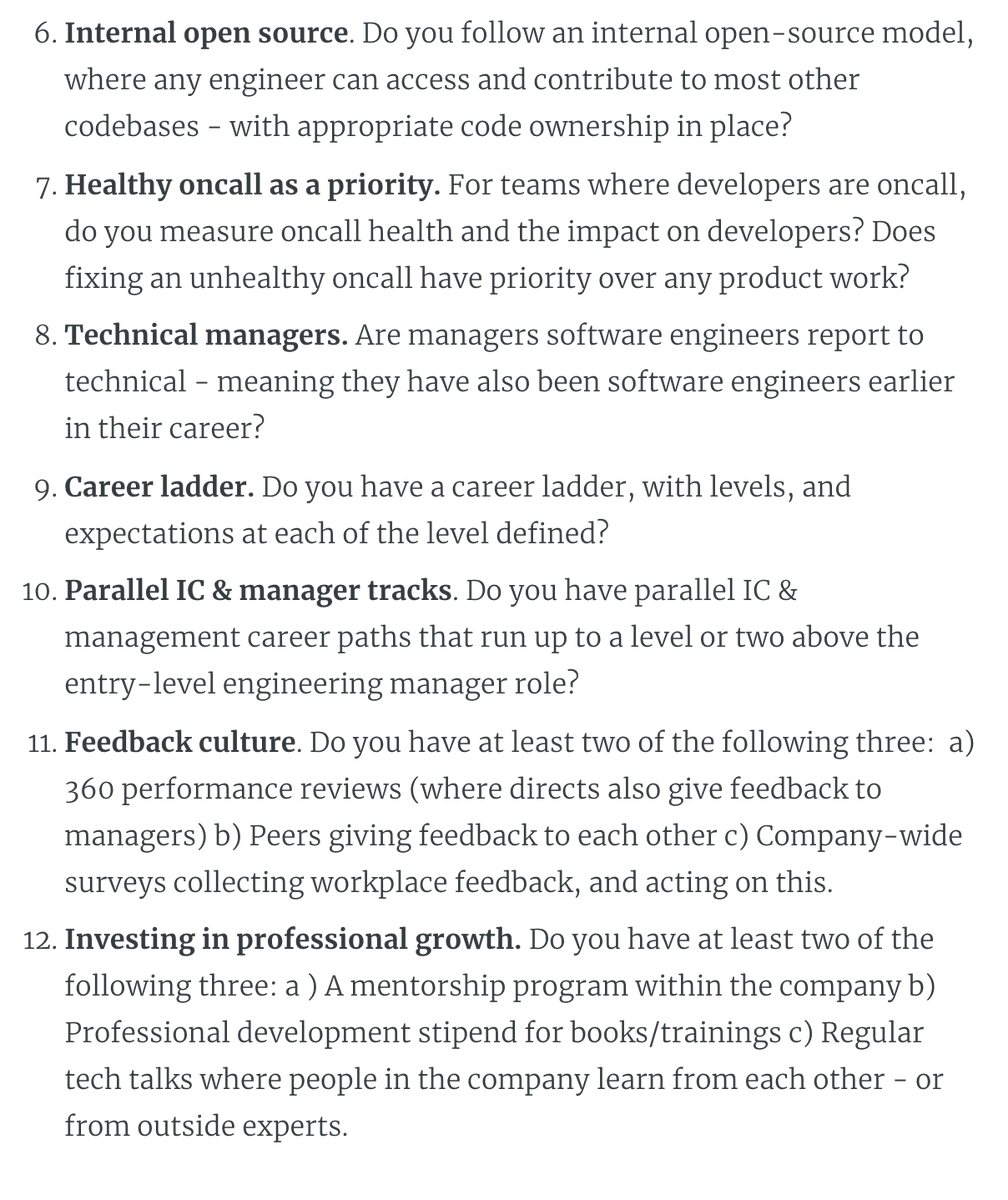
FAANG (Facebook, Apple, Amazon, Netflix, Google) came about purely with regards to total compensation. ~2014 onwards these companies paid the most TC, in a large part thanks to large stock grants & stock 📈.
There are still few places you can make so much with so little risk.
There are still few places you can make so much with so little risk.
https://twitter.com/rakyll/status/1451585970441097219
There are plenty of places where as an eng you could outperform total compensation packages of FANG: most notably recently IPO’d companies (eg Doordash, Robolox, Coinbase, Robinhood etc) or when joining companies with good timing (eg Snap).
You had to take more risks for these.
You had to take more risks for these.
I also feel FAANG is overhyped especially for new grads who desperately want to get in and somehow this naming fuels it’s own “myth”.
Professional growth-wise there are so many comparable places - with less competition to get in, similar cultures and compensation.
Professional growth-wise there are so many comparable places - with less competition to get in, similar cultures and compensation.
Other abbreviations that never stuck:
PAULS: Pinterest, Airbnb, Uber, Lyft, Stripe. ~2017 was expected they can beat FAANG total compensation after they IPO.
FAANGMULA - adding Microsoft, Uber, Lyft, Airbnb around 2018 (similar expectations).
U & L fell short on expectations.
PAULS: Pinterest, Airbnb, Uber, Lyft, Stripe. ~2017 was expected they can beat FAANG total compensation after they IPO.
FAANGMULA - adding Microsoft, Uber, Lyft, Airbnb around 2018 (similar expectations).
U & L fell short on expectations.
• • •
Missing some Tweet in this thread? You can try to
force a refresh







